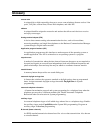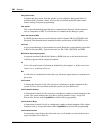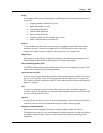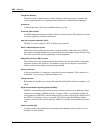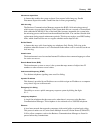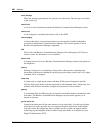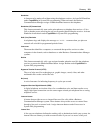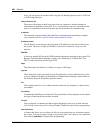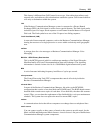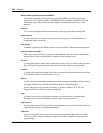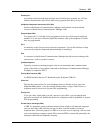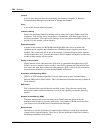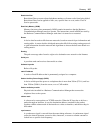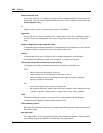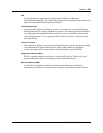
302 Glossary
P0993298 02
Also, you can answer an external caller using the call handling features such as Call Park
or Call Pickup Directed.
Internet Protocol (IP)
The protocol that supports data being sent from one computer to another through an
interconnection (internet) of networks. IP is a connectionless protocol, which means that
there is no established connection between the end points that are communicating.
IP address
The internally-assigned address that identifies a destination and transmitting computer
over a internet. See also static IP address and dynamic IP address.
IP address server
The IP address server manages the assignment of IP addresses to the devices that access
the system. The server assigns an IP address to the device whenever it logs on to the
network.
ISDN DN
A directory number (DN) used by ISDN terminal equipment connected to the system. The
Business Communications Manager system uses a maximum of 30 ISDN DNs. The
DECT cordless handsets use this type of DN.
kbyte
The abbreviation for kilobyte. A kilobyte is equal to 1024 bytes.
keycode
These numerical codes, generated for specific applications and for individual sites, allow
access to additional features on the Business Communications Manager system. Refer to
the Software Keycode Installation guide for details.
line
The complete path of a voice or data connection between one telephone, or other device,
and another.
line number
A number that identifies an external line. The total number of lines depends on the number
and type of trunk media bay modules installed.
line pool
Lines grouped in a common pool that assigned telephones can access to make external
calls. Assign a line to be part of a line pool under Trunk/Line data in Lines programming.
Line Redirection
A feature that allows you to redirect all calls on an incoming line to a destination outside
the system. You can set up the system to ring briefly when a call comes in on a redirected
line, under Capabilities in System DNs programming.




